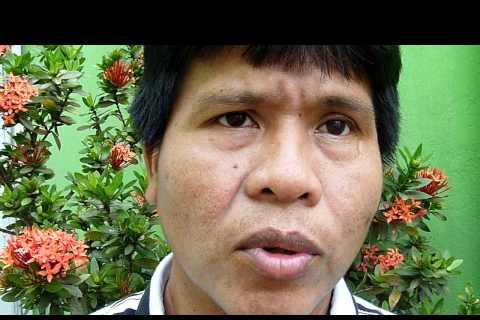In Cambodia, some 200,000 mostly Indigenous Kuy villagers are desperately trying to prevent the destruction of Prey Lang (“Our Forest), the last large primary forest of its kind on the Indochina peninsula. The Cambodian government has issued a patchwork of concessions to road builders, mining companies, and agro-industries. Bulldozers are slashing the forest to build new roads, rubber plantations, and mines.
Other information
On the first week of November, International Rivers launched an international petition calling on the Prime Ministers of Laos and Thailand to cancel plans to build the Xayaburi Dam. They expect to collect as many signatures as possible to help add pressure on these governments before the upcoming Mekong River Commission Council meeting that will take place from next December 7-9th.
The Uruguayan economy is largely dependent on agriculture and livestock raising, in which the dairy industry plays an important role. The production of milk and other dairy products is mainly concentrated in three departments, two of which – San José and Colonia – present a diverse collection of family farms and an organized local society that have achieved favourable levels of income and quality of life, making this one of the most productive and successful regions in rural Uruguay.
Oxfam International recently released an eye-opening report on the activities of UK-based New Forests Company (NFC) in Uganda. The company currently plants and harvests timber on 27,000 hectares of tree plantations in Uganda, Tanzania, Rwanda and Mozambique, and has deals in these countries totalling around 90,000 hectares. It claims that the timber produced can satisfy all the population's needs, thereby preventing logging in natural forests. In Uganda it has planted around 9,300 hectares of pine and eucalyptus trees since 2006, on land licensed to the company by the government.
The Dayak have inhabited the forest in Kalimantan for a long time before the current State of Indonesia was established. Their adat (custom) has ensured the integrity of the environment and the forest until imposed commercial exploitation started to devastate, damage and encroach on their customary land. Since then, they denounced that decades of destructive projects imposed either directly or indirectly by the Government have progressively disempowered and impoverished the Dayak through the uncontrolled and often illegally issuing of permits and/or concessions through corruption.
For more than 20 years, Colombia has seen the ongoing expansion of monoculture tree plantations, to the benefit of transnational companies who have enjoyed and continue to enjoy the support of government policies. To analyze this continued expansion, whose consequences include land grabbing, rights violations and the displacement of communities, CENSAT-Friends of the Earth Colombia organized a forum entitled “Tree Plantations in Colombia: A Critical Look”, held in Bogotá on September 21, the International Day Against Monoculture Tree Plantations.
Only available in Portuguese -
Depoimento (audiovisual) de José Luiz Kassupá sobre os impactos do mecanismo REDD na vida dos Povos Indígenas, durante a oficina "Serviços ambientais, fundos verdes e REDD: Salvação da Amazônia ou Armadilha do Capitalismo Verde", 3-7 de outubro em Rio Branco (AC), Brasil. José Luiz é primeiro secretário do movimento indígena no estado de Rondônia.
Only available in Portuguese
Depoimento de Sandra Lineia de Caritas Manaus (AM), sobre a relação entre o mecanismo REDD e a migração de populações tradicionais e rurais para as Cidades, durante oficina "Serviços Ambientais, REDD e Fundos Verdes do BNDES: Salvação da Amazonia ou Armadilha do Capitalismo Verde?", em Rio Branco, estado de Acre, entre 3 e 7 de Outubro de 2011
We gathered in Rio Branco, in the State of Acre, on 3-7 October 2011 for the workshop “Serviços Ambientais, REDD e Fundos Verdes do BNDES: Salvação da Amazônia ou Armadilha do Capitalismo Verde?” (Environmental Services, REDD and BNDES Green Funds: The Amazon’s Salvation or a Green Capitalism Trap?)
We live in times of warming. Perhaps the climate is the most obvious expression of an economic acceleration that has warmed up its engines, burning everything in its path. In just a few short decades, productivity has grown enormously. We have seen the emergence of economies of scale, an ever increasing accumulation of capital, a rising number of corporate mergers, the expansion of markets, globalization.
On this International Day Against Monoculture Tree Plantations, the Latin American Network Against Monoculture Tree Plantations (RECOMA), a network of Latin American organizations with the basic objective of coordinating activities to oppose the expansion of large-scale monoculture tree plantations on a regional level, with representatives from several Latin American countries, in conjunction with other social organizations and activists, is launching an open call for opposition to the so-called New Generation Plantations Project (NGPP) promoted by the World Wide Fund for Nature (WWF), an
Industrial tree plantations have often expanded through direct land expropriation and through manipulative land purchase. But there is a third kind of mechanism by which such expansion indirectly occurs, a mechanism that is somehow less-known although it is probably as important – if not more – than the two previous ones: debt relations. This short article intends to shed some initial light on this mechanism with special reference to commercial tree crops in Indonesia.
At the level of the small planter



